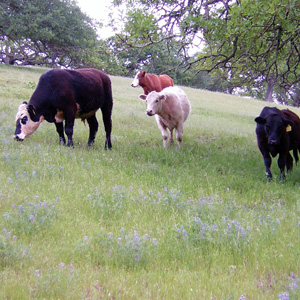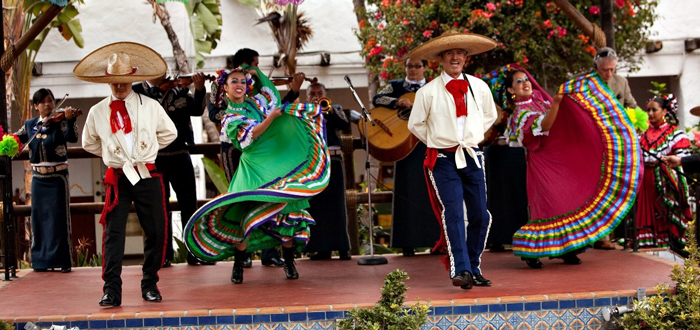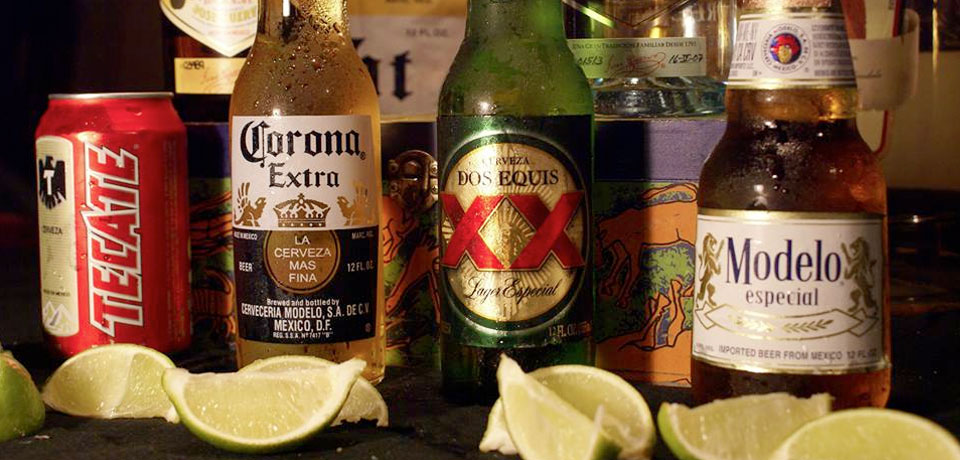İstanbul escort bayan partnerlere hayranlık duyuyor, onlarla birlikte zaman geçirmek için yeni arayışlar içindeyseniz şuanda arzularınızı gerçekleştirebilirsiniz. İstanbul escort sitesinde her isteğinize göre hizmet sunan yüzlerce partner var. Eskort hizmeti edinmek cinsel açıdan sizlere doygunluk verebilir, ne istediğinizi tam olarak biliyorsanız İstanbul escortlar ile görüşmeler yapabilirsiniz. Otellerde veya sizlere ait özel evlerde cinsel isteklerinizi giderebilirsiniz. Her açıdan farklı deneyimler edinmek, cinsel ihtiyaçlarınıza karşılık bulmak için İstanbul escorts görüşmeleri yapabilirsiniz. Geceleri veya gündüzleri istediğiniz şekilde bayanlarla birlikte olabilirsiniz.
İstanbul escort hizmeti sunan güzel kızlarla aşk ilişkileri yaşayabilirsiniz. İdeal şartlarda cinsellik yaşamak her istediğinizde elde edebileceğiniz bir durum değildir, buna istinaden varsayılan olarak düşünürsek burada bulunan İstanbul escorts hizmeti sunan bayanlar son derece alımlı kişilerdir. Dilediğiniz şekilde aşk hayatınıza yön vermek istiyorsanız, burada yer edinen escort İstanbul buluşmaları sunan partnere ulaşmalısınız. Kaliteli, profesyonel ve tutkulu cinsellik için bir çok bayanla buluşmalar düzenleyebilir, İSTANBUL ESKORT görüşmelerine katılabilirsiniz.
Escortlar İstanbul servisi veya escorts in İstanbul hizmeti için arzu ettiğiniz hanımefendilerle birlikte olabilirsiniz. Eskort İstanbul hizmeti yada İstanbul escorts ilişkileri edinmek için bayan escort sitemizi ziyaret ettiğiniz için teşekkür ederiz. Kesinlikle memnun kalacağınız bir cinsel birlikteliğe başlamadan önce tüm İstanbul eskort hizmeti sunan partneri inceleyiniz. Escorts İstanbul web sayfasına hoş geldiniz, umarız arzu ettiğiniz şekilde keyifli zamanlar geçirirsiniz. ESCORT İSTANBUL buluşmaları için burada bulunan escort kızlardan randevu alabilirsiniz.
İSTANBUL ESCORT KIZLARLA YENİ AŞKLAR KEŞFEDİN.
Partnerlerimiz tüm isteklerinizi yerine getirecek ve unutulmaz bir deneyim sağlayacaktır! Eskortlarla tanışmanın yeni bir yöntemini mi arıyorsanız doğru yerdesiniz. Yüzlerce partner arasından seçim yapın ve eşsiz deneyimler edinin. Kendinize bir refakatçi arkadaş bulun! Tutkulu ve anlayışlı partnerlerimiz, sıradan bir hayattan kaçmanıza ve anı yaşamanıza yardımcı oluyor. Kataloğumuzda harika kızlar sizi bekliyor. Bugün size en çok hitap edeni seçin ve hayallerinizi gerçekleştirin. Aradığınızı bulabilmeniz için seçiminizi dikkatlice yapın. Esmer kızlardan deneyimli zarif olgunlara kadar, mükemmel arkadaşınızı seçin ve keyifli zamanlar geçirin.
ESCORT BAYAN SİTEMİZ KEYİFLİ RANDEVULAR SUNAR.
Web sitemizde vakit geçirebileceğiniz yüzlerce partner bulabilirsiniz. Esmerden sarışına, kısadan uzuna, gençten olguna, sitemizde hepsine sahibiz! İster romantik bir akşam, ister daha özel bir an, herkes için bir hizmetimiz vardır. Her profil doğrulandı ve escort kızlar hakkında bilmeniz gereken ayrıntılara yer verildi. Rahatınızı ve mahremiyetinizi sağlamak için, hiçbir risk olmaksızın tamamen güvenli ve özel hizmet sunulmaktadır. Sorun yok, endişe yok, sadece saf zevk! Özel olarak eğitilmiş profesyonellerimiz, endişelenmeden rahatlayabileceğiniz güvenli bir ortam sağlar. Escort bayanlar, tüm güvenlik gereksinimlerinizi karşıladıklarından emin olmak için kapsamlı kontrollerinden geçerler.
İSTANBUL ESCORTS İLE ARZULARINIZI TATMİN EDİN.
İstanbul escorts hizmetlerimiz, tam olarak istediğinizi elde ettiğinizden emin olmak için burada! Escort sitesindeki bayanlarla görüşerek, istediğiniz zevk ve fantezileri gerçekleştirebilirsiniz. Unutulmaz anlar yaşamanıza yardımcı olmak için bekleyen escort kızlarla tanışabilirsiniz. Heyecan verici ve sürprizlerle dolu bir birliktelik yaşayın. Evlerde veya otellerde güzel kadınlar birlikte olabilirsiniz. Escortlar, tüm ihtiyaçlarınızı karşılayabilecek niteliklere sahiptir. Misyonumuz, eğlenceli ve keyifli görüşmeler yapmanızı sağlamaktır.
istanbul escort : HOŞ GELDİNİZ.
Cinsel deneyimi, escort kızlar ile daha önce hiç olmadığı gibi yaşayacaksınız. Sitemiz, İstanbul’da unutulmaz bir aşk deneyimi yaşamak istiyorsanız, bayan escort bulmak için kaliteli bir adrestir. Bize katılın, aradığınız çekici kadınlar hakkında ayrıntılı açıklamalar ve fotoğraflar bulun. Sitemiz aracılığıyla en iyi bayanları keşfedin. Sitemizdeki her bayan, keyifli bir deneyim yaşamanızı sağlamak için tarafından doğrulandı.
İSTANBUL ESCORT SERVİSİNDE GİZLİLİĞE VE PROFESYONELLİĞE İNANIYORUZ.
Vip escort seçeneklerimiz sayesinde ihtiyaçlarınız için aradığınız sevgiliyi endişelenmeden bulabilirsiniz. İstanbul eskort profillerimiz, maksimum kalite güvencesi için özenle seçilir, böylece seçtiğiniz kadınların hem arkadaşlık hem de gerçek memnuniyet sunduğundan emin olabilirsiniz. En yüksek hizmet kalitesini sağlamak için ekibimiz tarafından incelenip doğrulanan escort kadınları arasından seçim yapın. Escort bayanların son derece profesyonel olmasını ve size lüks bir deneyim sunmasını sağlıyoruz. Dilerseniz randevu süresine göre indirim de yapabilirler.
WEB SİTEMİZDE ISTANBUL ESCORT ARKADAŞINI BUL!
İstanbul bayan escort arkadaş bulma web sitemiz sezgisel ve kullanımı basit olacak şekilde tasarlanmıştır. Tam olarak aradığınızı bulmak için escort seçeneklerimizi kolayca inceleyebilirsiniz. Tüm içeriğimizin yalnızca orijinal olmasını sağlıyoruz, bu nedenle telefon numaraları ve ayrıntılı açıklamalar gibi tüm bilgiler doğru ve günceldir. Sitemiz tanışmadan önce birbirimizi etkili bir şekilde tanımak için tasarlanmıştır. Güzel fotoğrafların, bilgilendirici profillerin ve daha fazlasının keyfini çıkarın!
İSTANBUL ESCORT BAYAN TELEFON NUMARALARI.
Elit escort tüm arzulara hitap eder. Her profil ayrıntılı kişisel bilgiler içerir, böylece eskortunuzla buluşmadan önce tam olarak ne bekleyeceğinizi bilirsiniz. Resimler ve diğer önemli ayrıntılar da dahil olmak üzere sitemizdeki her escort bayan İstanbul ilanları hakkında ayrıntılı bilgilere göz atın. Sitede bulunan telefon numaraları ile mükemmel eşinizle hızlı ve kolay bir şekilde iletişime geçin.
%100 GÜVENLİ ETKİLEŞİM SAĞLAYIN.
Her etkileşimin yalnızca her iki taraf arasında kalmasını sağlayarak, müşterilerimizin verilerini %100 güvende tutmaktan gurur duyuyoruz. Artık beklemeyin, bugün bayan escort İstanbul hizmeti edinin! Vip escort ile randevulaşırken güvenli ve gizli bir deneyimi hak ediyorsunuz. Gizliliğinizi ciddiye alıyoruz, hiçbir bilginiz üçüncü taraflarla paylaşılmayacaktır.
ESCORT İSTANBUL, HAYALİNİZDEKİ SEVGİLİYLE TANIŞIN.
İstanbul escort, hayalinizdeki sevgiliyi bulmanız ve tanışmanız için tek adrestir. Size hayatınızın cinsel deneyimini garanti edebilecek en seçkin, VIP, olgun ve kaliteli bayanları sunuyoruz. Kendiniz için en iyi kadınları keşfedin! İster bir iş etkinliği, ister romantik bir akşam veya çılgın bir gece olsun, bayanlarımız baştan sona tam bir memnuniyet sağlar. En iyi escort seçimi ile daha önce hiç olmadığı gibi bir zaman yaşayın. Elit, vip ve olgun kadınları bulun ve görüşmeler yapmaya başlayın. Hemen şimdi başlayın! Size şehirdeki en ateşli Rus ve yabancı eskortları sunuyoruz. Kızları keşfedin ve bu gece için randevunuzu alın!
İSTANBUL ESCORT OLARAK HİÇ BİR MÜŞTERİ AYNI OLAMAZ.
Olgun escort olarak hiçbir müşterinin aynı olmadığını anlıyoruz, bu nedenle herkesin ihtiyaç ve arzularını karşılayabilecek buluşmalar sunuyoruz. İster samimi bir akşam yemeği randevusu ister hızlı bir şehir dışı deneyimi için olsun, escort kızlarımız kesinlikle hayal kırıklığına uğratmayacak! Sosyal hayatınızı unutulmaz kılacak güzellik ve zarafete sahip özel modeller ile en lüks escort hizmetlerinin keyfini çıkarın.
İstanbul bayan escort sitesi, hayallerinizdeki eşleri bulmak için en iyi web adresidir. Ücretsiz flört ilanlarıyla dolu kapsamlı portföyümüzü keşfedin. Özel ihtiyaçlarınıza ve arzularınıza en uygun escort bayanı seçin. Bu kızlar, Rusya ve diğer egzotik yerler dahil olmak üzere hayatın her kesiminden geliyor, bu yüzden ihtiyaçlarınıza uygun birini bulacağınızdan emin olabilirsiniz! Arkadaşlığa ihtiyaç duyan bekar erkekler veya cinsel hayatınızı renklendirmek isteyen çiftler için mükemmeldir.
İSTANBUL ESCORT KADINLAR HAYATIN HER KESİMİNDEN GELİYOR!
Pürüzsüz ve ipeksi ciltleriyle kesinlikle muhteşem görünüyorlar! İster Asyalı bir escort kız ister tatlı bir Avrupalı escort bayan olsun, çeşitli seçimlerimiz kesinlikle ufkunuzu genişletecek ve randevunuzu unutulmaz kılacaktır. Tüm ihtiyaçlarınızı karşılamak için fazlasıyla deneyime sahip olgun bayanların en iyileri ile iletişim sağlayın. Neden yeni bir şey denemiyorsunuz? Escortlarımız, yalnızca görünüşleri, çılgın kişilikleri ile değil aynı zamanda coşkulu enerjileri içinde özenle seçilmiştir. En iyi bayanlar özel ve gizli bir hizmet sunarlar. İstanbul escortlar sizi doğrudan otelinizde veya evinizde de ziyaret edebilir, iletişime geçip randevu alabilirsiniz.
YALNIZCA EN KALİTELİ İLANLAR ESCORT ISTANBUL SAYFAMIZDA.
Sayfamızda yalnızca en kaliteli ilanlar düzenli olarak güncellenir, bu sayede herhangi bir sorun veya kafa karışıklığı yaşamadan tam olarak aradığınızı bulmanızı sağlar. Güzel bayanlarla, güvenilir hizmet ve pozitif birliktelikler sunarak her zaman en üst düzeyde müşteri memnuniyeti elde etmek için çalışıyoruz. Ayrıca, kriterleriniz ne olursa olsun her zaman kriterlerinize uyan bir Rus escort bulacağınızı garanti ediyoruz! Görüşmelerinizi unutulmaz kılmak için ne gerektiğini biliyoruz. Hizmetler arasında seçim yapın veya canlı şovlarla çılgına dönün! Sadece elit escort ile bu farklı yaşayabilirsiniz.
İSTANBUL ESCORT, GÜZELLİK VE HİZMET BİR ARADA!
Escort sayfasında bir geceliğine ateşli bir Rus kızı bulmak ister misin? Bir iş toplantısı için acil bir talebiniz mi var? Ya da sadece güzel ve egzotik bir arkadaşlık mı bulmak istiyorsunuz? Dünyanın her yerinden her türden escort kızlar sizi bekliyor. Kusursuz hizmet seçenekleriyle en ilginç, sevimli ve yetenekli yabancı bayanlarından oluşan geniş bir vitrin sunuyoruz.
ESCORT PARTNERLER ARASINDAN SEÇİMİZİ YAPIN.
Yüzlerce yabancı Rus escort arasından seçim yapın! İster klasik Rus güzelliğinde bir gözünüz olsun, ister egzotik güzellikleri keşfetmek isteyin, escort iletişim sitesi her şeye sahiptir. İstanbul’da geçirdiğiniz zamanı unutulmaz kılacak eskort kızlar arasından seçiminizi yapın.
ESCORTS ISTANBUL İLE GÜVENDESİNİZ.
Eskort ararken takdirin son derece önemli olduğunu biliyoruz. Ekibimiz her profili kişisel olarak doğrular ve kişisel bilgilerinizin hiçbirinin herhangi bir üçüncü tarafa ifşa edilmemesini sağlar. Endişelenmeden sorunsuz hizmetimizin keyfini çıkarın. İstisnai bir randevu için daha fazla aramayın. Escort kızlarımız kusursuz kaliteyi koruyor ve hizmet standartlarımız rakipsizdir. Her birlikteliğin mümkün olduğunca zevkli olmasını sağlıyoruz. Sitemiz, en kısa sürede elit bir Japon veya Taylandlı kızla eğlenmek için ihtiyacınız olan her şeyi sağlayacaktır. Bugün aşkı bulun!
ISTANBUL ESCORT BULUŞMALARI SUNAN KIZLAR.
Escort buluşmalarında sunduğumuz kızlar, güzellik, zeka ve hizmet yetenekleri konusundaki katı kriterlerimizi karşıladığından eminiz. Sunduğumuz vitrini kontrol ettiğinizden ve tam olarak aradığınızı bulduğunuzdan emin olun! Hizmetimiz, maksimum rahatlık ve takdir sağlamak için tasarlanmıştır. Gizli bir şekilde evinizde veya otelinizde escort hizmeti sunacağımızdan hiç endişeniz olmasın.
İSTANBUL ESCORT BAYANLARIN GÜZELLİĞİNİ VE ZEVKİNİ KEŞFEDİN!
Web sitemizde her arzunuzu karşılamaya hazır en güzel kadınlardan bazılarına sahibiz. Güzel eskort bayanları keşfedin, en üst düzeyde hizmet alın! Son derece seçkin, yetişkin eğlencesiyle dolu unutulmaz bir geceler yaşayın.
EN KALİTELİ ESCORT BAYANLAR İSTANBUL’DA
İstanbul’daki en kaliteli eskort bayanları sunar. Kızlarımız güzellikleri, tarzları ve hizmetlerinin kalitesine göre özenle seçilir. Sadece sizlere hizmet sağlarlar. Nitelikli bir seçim yapabilmeniz için tüm escort bayan İstanbul partnerleri hakkında güncel resimler ve doğru bilgiler vardır. Arzu ederseniz detaylıca inceleyebilirsiniz.
İSTANBUL ESCORTLARIMIZ İLE UNUTULMAZ DENEYİMLER.
Romantik akşamlardan kurumsal etkinliklere, escortlar İstanbul’da size unutulmaz bir deneyim yaşatabilir. Yani peşinde olduğunuz her ne ise, escort partnerler onu halleder! Bayan Escort İstanbul iletişim sitesince gizliliğinize, güvenliğinize ve memnuniyetinize öncelik veriyoruz. Sizin açınızdan hiçbir endişeye gerek kalmaması için güvenli ve gizli randevuyu garanti ediyoruz.
Sizler için sadece en iyi hizmeti sunan partnerleri sitemizde kabul ediyoruz. İSTANBUL ESCORT sitemizde sizlere sunulan hizmetleri çok ciddiye alıyoruz! Güler yüzlü partnerlerimiz, sevimli arkadaşlarımızla ile harika bir randevu gerçekleştirmenizi istiyoruz. Her şeyi ayarlamak için 7/24 hizmetinizdeyiz, şimdi dilerseniz bizimle buluşmalar yapabilirsiniz.
ESCORT BAYAN İSTANBUL, SEVGİLİNİZLE RANDEVULAŞIN.
Sevgilinizle şimdi randevulaşın ve İstanbul’da daha önce hiç olmadığı kadar keyifli zaman geçirin! Rekabetçi fiyatlarla olağanüstü hizmetler sunan, son derece deneyimli profesyonel escort kadınlar ile tanışın! Dost canlısı, sıcak kişilikleri ve çekicilikleri ile inanılmaz zaman geçireceğiniz kadınlara buradan ulaşın. En çılgın fantezilerinizi gerçekleştirmek için her türden partnerimiz mevcut! Minyon kızlardan, olgun kadınlara kadar aradığınız tüm escorlar burada! Galerimizi keşfedin ve en sevdiğiniz kızlarla birlikte zaman geçirin.
ZARİF, SOFİSTİKE İLİŞKİLER YAŞAYIN : İSTANBUL ESKORT
Şaşırtıcı derecede güzel kızlar ve bayanlar için ziyaret edilecek olan İSTANBUL ESKORT sitesi sayesinde zarif, sofistike ilişkiler yaşayın! İhtiyaçlarınıza, zevkinize ve tarzınıza uyan mükemmel bir arkadaş bulun! Web sitemiz size en kaliteli hizmeti sunan kızları sergiliyor. En seçkin escort ilanlarını ve hizmetlerini bulabileceğiniz en iyi platforma hoş geldiniz! İstanbul escorts arkadaşlığın tadını çıkarın, kalite standartlarından ödün vermeden onların güzelliğini ve çekiciliğini keşfedin.
İSTANBUL ESCORTLAR İLE KALİTENİN TADINI ÇIKARIN!
En iyi escort bayanları İstanbul’da özenle seçiyoruz. Her erkeğin ağzını açık bırakabilecek en iyi bayanları özenle seçiyoruz. Yüksek kaliteli hizmetler ve kesintisiz cazibe! Hepsini burada bulabilirsiniz. Elit hanımlar arasından seçim yapın ve eşsiz kalitenin keyfini yaşayın!
SİTEMİZDEKİ ESKORT KADINLAR : KEYİFLİ ÇAĞRIŞIMLAR.
Sitemizden hanımefendiler ile keyifli çağrışımlar yapabileceğiniz ilanlara göz atabilirsiniz. Ayrıca, sadece birkaç tıklama ile randevunuzu hızlı ve kolay bir şekilde güvence altına alabilirsiniz! Binlerce ilan arasından güvenilir bir hanımefendi bulmak kolay değil! Size sadece en iyi arkadaşlık kalitesini elde edebilmeniz için saygın bayanlardan özgün içerikler sunmak için buradayız.
SARSILMAZ TAAHHÜDÜMÜZ VE İTİBARIMIZ : EN İYİ ESCORT HİZMETİ.
En iyi hizmeti sunma konusundaki sarsılmaz taahhüdümüz ve itibarımız, şu anda İstanbul’un önde gelen escort sitelerinden biri olmamızın nedenidir. Sizlerde, güvenilirliğin sınır tanımadığı dünyamızın bir parçası olun! Eskortlarımızla arkadaşlık yapmayı seçtiğinizde herhangi bir yükümlülük ve çifte standart bulunmadığını garanti ediyoruz. Deneyimli partnerlerimiz, tüm görüşme boyunca kendinizi rahat ve güvende hissedebilmeniz için gizliliğinizin korunmasını sağlar. 7/24 arzu ettiğiniz şekilde size eşlik edecek İstanbul escorts hizmetlerimizden birini deneyimleyin.

 The Gold Rush Eatery
The Gold Rush Eatery  Good Versus Evil Tour Brings Anthony Bourdain and Eric Ripert to San Jose
Good Versus Evil Tour Brings Anthony Bourdain and Eric Ripert to San Jose 








